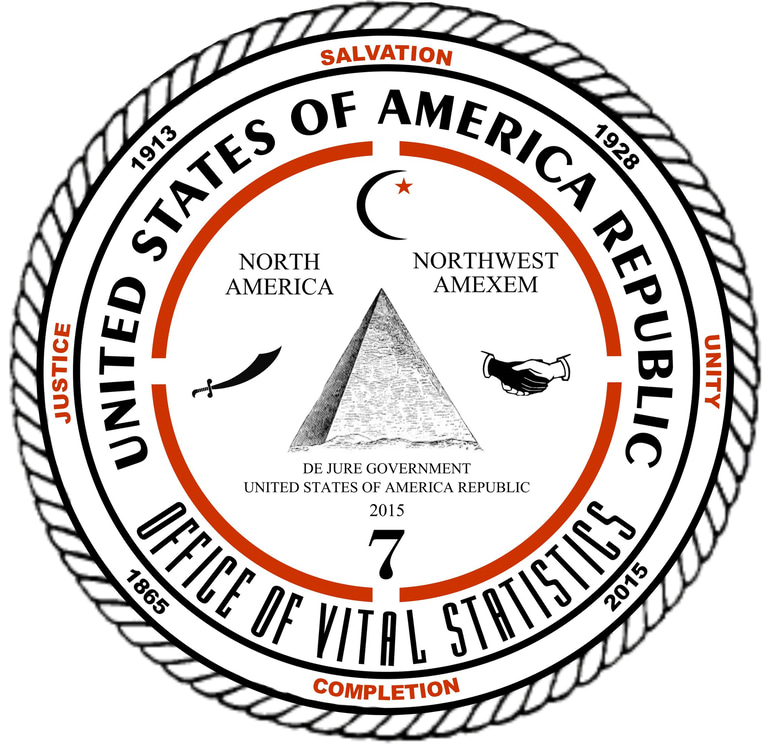an official site of the united states of america republic national gOvernment
BIRTH CERTIFICATE
A birth certificate is one of the most essential legal documents issued by a government that records the birth of a person. It serves as both an official record and proof of identity, providing fundamental information such as the date, time, and location of birth, as well as the names of the child’s parents. The significance of having a birth certificate extends far beyond the simple acknowledgment of a person’s existence; it holds great value in various legal, social, and economic contexts.
Here are some key reasons why a birth certificate is important:
1. Proof of Identity and Nationality
A birth certificate is often the first and primary legal document a person receives. It serves as official proof of identity and nationality, which are crucial for accessing various services, including healthcare, education, and employment. Without a birth certificate, a person may face challenges proving their identity, nationality, or eligibility for services.
2. Access to Social Services and Benefits
In many countries, a birth certificate is required to apply for social services, including welfare programs, social security, and government assistance. It is often used to register for school or healthcare services, and it can be crucial for eligibility to receive government benefits like child support, healthcare coverage, and financial assistance programs.
3. Educational Enrollment
Most schools, colleges, and universities require a birth certificate to verify a student's age and identity during the enrollment process. This ensures that students meet the legal age requirements for various education levels. Additionally, it helps prevent fraud and ensures that students are enrolled in the appropriate academic programs based on their age.
4. Establishing Parental Rights and Inheritance
A birth certificate legally acknowledges the parents of a child. In cases of inheritance or custody disputes, it becomes a critical document in establishing parental rights. The document may be required in legal proceedings to determine rights to assets, property, or even guardianship.
5. Employment and Work Authorization
A birth certificate may be necessary when applying for a job, as employers often request proof of identity and eligibility to work. This document can be used to verify a person’s age, citizenship status, and eligibility for legal employment, ensuring that individuals meet the criteria for employment in certain regions or industries.
6. Obtaining a Passport or Travel Documents
For international travel, a birth certificate is often required to apply for a passport, which serves as the official travel document. Birth certificates provide evidence of nationality, which is essential for obtaining a passport, visa, and other travel-related documentation.
7. Legal Protections and Rights
A birth certificate plays a crucial role in securing an individual’s legal rights. Without it, a person may have difficulty asserting their rights in legal matters, such as owning property, entering contracts, or exercising voting rights (in countries where nationality is tied to age and legal status). It ensures that an individual is recognized under the law and has access to the protections afforded by the state.
8. Public Health and Demographic Data
Birth certificates are essential tools for governments and health organizations to track population growth, birth rates, and public health trends. This demographic information is used to inform policy decisions, allocate resources, and plan for public services, such as healthcare, education, and social infrastructure.
9. Preventing Identity Fraud and Theft
A birth certificate helps to prevent the risk of identity theft and fraud. Since this document serves as a foundation for other vital records, it ensures that a person’s identity is safeguarded in official transactions. Additionally, some jurisdictions require a birth certificate as a necessary document to access other forms of identification, like a driver’s license or national ID card.
10. Simplifies Legal Processes
Having a birth certificate simplifies many legal processes, such as obtaining a marriage license, settling estates, or establishing child guardianship. It provides the required documentation to validate one's identity and age, ensuring smoother legal transactions and preventing complications.
United States of America Republic
ADDRESS: USAR VITAL STATISTICS
© 2025. All rights reserved.
Department of Vital Statistics
1499 MLK DR, STE 64102
PROVINCE INDIANA, 46402
